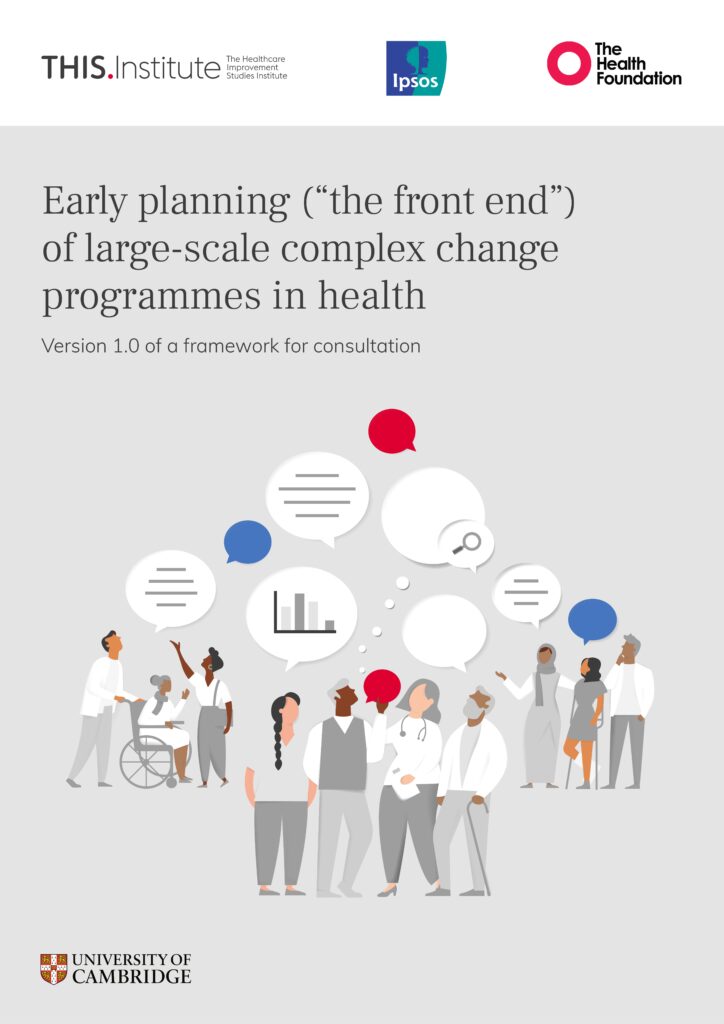A framework to guide the design and planning of large scale change programmes in health and healthcare


A large-scale change programme in health involves a complex set of interrelated interventions and activities, organised around a shared high-level goal or theme. Examples of these kinds of programmes include virtual wards and community diagnostic hubs.
If designed and planned well, these programmes can help deliver some of the transformational changes needed to improve patient care that are central to the Fit for the Future: 10 Year Health Plan for England. But large-scale programmes in health and healthcare, as in many other sectors, are prone to underperformance in delivery, cost, schedule, outcomes, and impact. It is also known that many of the challenges arise during the early planning stages of a programme. It’s at this “front end” where things often start to go wrong – but bespoke guidance for policymakers and programme leaders to support early planning of large-scale change programmes specifically in the health field is lacking.
To address this gap, a collaboration involving THIS Institute, Ipsos and the Health Foundation is developing a framework to support senior leaders and teams leading the initial stages of change programmes. It’s based on analysis of research literature and guidance on large-scale programmes (sometimes known as “mega-projects”) across multiple sectors, the research literature on change programmes in healthcare, and interviews with leaders of previous NHS programmes.
This work has identified the importance of fundamental aspects of programme planning – such as the case for change, for example. We’ve also gained important insights into some of the complexities of working with multiple stakeholders – like understanding their motivations and how and why they make decisions, being able to influence effectively, being alert to the political landscape, and having credible leaders who can adapt to working within uncertain and ambiguous environments. We found that change programmes in health and healthcare share many characteristics with other major government programmes, so are likely to benefit from techniques such as a portfolio-based approach and an integrated approach to programme management based on government guidance, while tailored for the specifics of the health context.
A beta-version of the framework is now available. Offering a series of guiding questions spanning three themes, it supports structured thinking about design and early planning of large-scale health and healthcare change programmes. It is intended to facilitate discussions and dialogue rather than serve as a checklist or tick-box exercise, and is likely to be most useful when used as part of a team-based discussion covering:
- Programme purpose and content
- Programme management, costing and scheduling, governance, and learning
- Contexts, stakeholders and implementation strategy
Many of the questions in the provisional framework are also relevant to many initiatives in health and healthcare, even if they are not at national scale.
We’re keen to engage policymakers and programme leaders in refining the framework to make sure that it’s practical and useful. We’re currently carrying out an online consultation on Thiscovery to gather insights.
Once we have taken on board the feedback, we’ll test a refined version of the framework using a scenario-based table-top exercise. We’ll then publish the final version, making it freely available.
Large scale programmes can be a powerful way to create a change in health and healthcare. We hope this framework will help to make design and early planning better, ultimately benefitting patients. Access the beta version of the framework and take part in the consultation:
